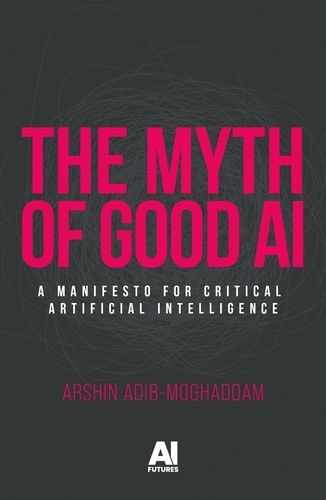Readings Newsletter
Become a Readings Member to make your shopping experience even easier.
Sign in or sign up for free!
You’re not far away from qualifying for FREE standard shipping within Australia
You’ve qualified for FREE standard shipping within Australia
The cart is loading…






AI is the future. But what kind of future do we want it to be? In The myth of good AI, Arshin Adib-Moghaddam offers a bold new approach to understanding Artificial Intelligence and its implications for human existence.
Our lives are increasingly governed by highly intrusive AI-driven technology. Facial-recognition software is now present in many of our phones, while an estimated 70 per cent of US companies use algorithms to help choose between job applicants. Tech giants assure us everything is fine, but the truth is this technology has repeatedly been exposed as ageist, racist and misogynist.
Drawing on examples from around the world, Adib-Moghaddam offers a comprehensive indictment of the 'good AI' myth. As he argues, we do need good AI, but we need it on our terms. With this in mind, he offers the reader strategies for survival and an alternative vision for planning our common future.
$9.00 standard shipping within Australia
FREE standard shipping within Australia for orders over $100.00
Express & International shipping calculated at checkout
AI is the future. But what kind of future do we want it to be? In The myth of good AI, Arshin Adib-Moghaddam offers a bold new approach to understanding Artificial Intelligence and its implications for human existence.
Our lives are increasingly governed by highly intrusive AI-driven technology. Facial-recognition software is now present in many of our phones, while an estimated 70 per cent of US companies use algorithms to help choose between job applicants. Tech giants assure us everything is fine, but the truth is this technology has repeatedly been exposed as ageist, racist and misogynist.
Drawing on examples from around the world, Adib-Moghaddam offers a comprehensive indictment of the 'good AI' myth. As he argues, we do need good AI, but we need it on our terms. With this in mind, he offers the reader strategies for survival and an alternative vision for planning our common future.